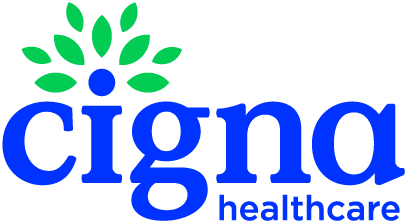

Chronic conditions are “conditions that last one year or more and require ongoing medical attention or limit activities of daily living or both.”2
While chronic conditions are typically associated with older generations, research shows that more and more older millennials are being diagnosed with chronic health conditions — more so than previous generations. Not only do chronic conditions have far-reaching impacts on their overall health, but also their emotional and financial wellbeing.1
Fortunately, through early detection and effective treatment, the negative effects of certain chronic conditions can be minimized. Learning how to manage a chronic condition by addressing problems early on and making informed decisions about your health and wellness can help you live a longer and healthier life.

If you are diagnosed with high blood pressure, your doctor may recommend that you take medicine to treat it. Your doctor will take into account your medical history and situation when prescribing medication. Often more than one is recommended, as research has suggested that multiple medications are more effective than one on its own.4 Altering your lifestyle can help lower blood pressure levels and reduce the risk of associated conditions.

Diabetes increases the risk of falling ill, as the increased blood sugar levels associated with certain illnesses can worsen the symptoms. This makes it more challenging for the immune system to fight off. Here are some ways to manage diabetes:6,9

- Don’t skip meals. If you feel too unwell to eat, try eating snacks high in carbohydrates, like small pieces of candy, or flat sugary drinks such as fruit juice.
- Continue taking your medication normally. If you are unsure about whether to stop or reduce certain medication, speak to your doctor.
- Stay hydrated. Blood sugar levels increase with dehydration.
- Check your blood sugar levels more often, and be aware of the signs of hyperglycemia (high blood sugar).
- Maintain and active lifestyle by exercising regularly.
- Follow a healthy diet and control your weight.
- Have your eyes screened. People with diabetes (12+ years) should have their eyes screened once a year.

Cancer is a complex chronic condition to manage, as there are so many different factors to consider – including the type and stage of the cancer. Treatment, including chemotherapy, radiation, immunotherapy and targeted treatment might be needed, depending on the stage of cancer.7 Consider the following:
Get support from family and friends. It will be difficult telling those close to you that you have cancer. However, the support and help they can offer is likely to be of great help to you.
Reach out to others. You may find that it helps to speak to other people who have or have had the same chronic condition. These may be friends or relatives, or members of support groups or societies. There might be people nearby who you can talk to, or perhaps you could consider joining online support networks.
Take time for yourself. Understanding and absorbing the information you’ve received is a process. Give yourself time to think it through, realise what it means, and come to terms with how it will affect your life. Make looking after yourself and getting what you need a priority.
Maintain your lifestyle. Take it one day at a time. Continue with your life, and maintain a healthy lifestyle – remember, physical exercise usually has a positive effect on both physical and psychological wellbeing.
TIPS FROM A MEDICAL PROFESSIONAL
“Watching your weight, keeping your blood pressure under control, keeping your diabetes under control, getting regular exercise, eating well, limiting alcohol, reducing salt levels, drinking less caffeine, avoiding smoking, and reducing and managing mental stress can all help,” says Beatriz Collado Bernabe, Nurse Case Manager at Cigna.3,4,5,8
When it comes to health and wellness, a second medical opinion can make all the difference in your care path. Find out more about our Decision Support program for extra peace of mind. Or, if you need additional medical support, learn more about Telehealth.
If you have any questions or need additional information, please contact your
HR department
or contact well-being@cigna.com. Alternatively, visit www.cignawellbeing.com.
This article was reviewed by Beatriz Collado Bernabe, Nurse Case Manager, TH&N – Integrated Health Team, Cigna.
- Middle-aged millennials. CNBC. https://www.cnbc.com/2021/05/04/older-millennials-chronic-health-conditions.html. Accessed February 23, 2022.
- About chronic conditions. Centers for Disease Control and Prevention. https://www.cdc.gov/chronicdisease/about/index.htm. Accessed January 20, 2022.
- High blood pressure (hypertension), overview. NHS. https://www.nhs.uk/conditions/high-blood-pressure-hypertension/. Accessed January 20, 2022.
- High blood pressure - symptoms and treatment. British Heart Foundation. https://www.bhf.org.uk/informationsupport/risk-factors/high-blood-pressure/symptoms-and-treatment. Accessed January 20, 2022.
- 10 ways to control high blood pressure without medication. Mayo Clinic. https://www.mayoclinic.org/diseases-conditions/high-blood-pressure/in-depth/high-blood-pressure/art-20046974. Accessed January 20, 2022.
- Diabetes UK. Diabetes and being ill. https://www.diabetes.org.uk/guide-to-diabetes/life-with-diabetes/illness. Accessed January 20, 2022.
- Types of Cancer Treatment. https://www.cancer.gov/about-cancer/treatment/types. Accessed January 20, 2022.
- Prevention of Coronary Heart Disease. NHS. https://www.nhs.uk/conditions/coronary-heart-disease/prevention/. Accessed February 10, 2022.
- Diabetes. NHS. https://www.nhs.uk/conditions/diabetes/. Accessed February 10, 2022.
All Cigna products and services are provided by or through operating subsidiaries of Cigna Corporation, including Cigna Global Wellbeing Solutions Limited, and other contracted companies. The Cigna name, logos, and other Cigna marks are owned by Cigna Intellectual Property, Inc. Products and services may not be available in all jurisdictions and are expressly excluded where prohibited by applicable law. This material is provided for informational purposes only. It is believed accurate as of the date of publication and is subject to change. Such material should not be relied upon as legal, medical, or tax advice. As always, we recommend that you consult with your independent legal, medical, and/or tax advisors. ©2022 Cigna. Some content may be provided under license.

